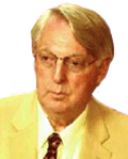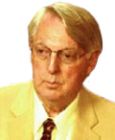
Education
Is Your Money Safe?
Surviving financial engineering and the ghost in the machine of capital markets
Posted June 30, 2012
Is Your Money Safe?
The Canary in the mine of Wall Street died and left us in a Geat Recession.
Does Wall Street live on as the canary in the mine of society itself?
Jakarta, Indonesia, 2009: My wife’s uncle motioned for me to join him at his table at Memories, a restaurant frequented by American expats. Without his trademark humor or smile, he wanted to talk. Over Heinekens, he told me “I took a big hit last year after the collapse of your Lehman Brothers in the States….Don’t know what or who to blame? Guess I should have read the fine print!” This uncle is the brother of my wife’s father, a former General, and the brother of one of Indonesia’s most respected journalists and historians. He did well in business, but could ill afford this big loss on the eve of his retirement. As he spoke, I recalled how I had managed to escape it all, even as millions here and abroad were less fortunate.
__________
Northern Virginia, USA, 2012: Do you think we got what we deserved with the near collapse of Wall Street? Might this catastrophe be a blessing in disguise? Some four-hundred years of natural science without the checks and balances of a moral science didn’t do us any good? What about high-tech financial engineering clashing with low-tech morality? Maybe now we’ll pay more attention to values in the world of facts, how they interact, and the two systems of science needed to cover them. Is this accident of history the troublesome ghost in the machine of Wall Street and engine of free-market capitalism? Is it possible the 2008 train wreck of capital markets had its origins in the failure of moral philosophy to evolve into moral science, much as the natural philosophies of astrology and alchemy evolved into the natural sciences of astronomy and chemistry? Let’s refer to this as the asymmetric evolution of natural science without moral science and regard it as a sickness of free-market capitalism; made worse by fast, automated investing and risk management without human involvement. Computers are now pushing the limits of unprepared, half-smart, half-educated minds into financial engineering. Given the absence of moral education and a moral science discipline, we’re seeing more than ever tendencies to put our money at risk. The dark side of human nature seems to be getting darker as technologies expose and amplify its influence. Periodic bubbles and crashes in the financial system must be expected and we must contain, mitigate and prepare for them. One way to do this is to upgrade today’s 3R education to the 4R education consisting of reading, writing, arithmetic and rational moral education grounded in science and not just ideology, tradition, or religion. This amounts to adding the awareness of our axiological FDTs to learning of ABCs and 123s.
__________
In response to the near collapse of Wall Street and free-market capitalism, assembled experts in various fields have launched postmortems focusing on esoteric subjects like “skin in the game to counter the view of clients as suckers,” “the human consequences of high frequency trading,” “financial engineering,” “mathematical modeling,” “stress testing,” “government regulations,” “Volker Rule” and so forth. I leave such things to the experts and focus instead on the equally important moral dimensions of finance and the behavior of capital markets which others tend to ignore for lack of expertise in this area.
Our best minds continue to seek careers in high-tech finance guided or misguided by the low-tech moral consciousness we all know so well. Are we all moral pigmies? Dartmouth College recently graduated four valedictorians with perfect 4.0 grade-point averages. All seem headed for Wall Street in one way or another and some look forward to earning an MBA degree from Harvard. Finance is one of the most popular career choices of undergraduates at both Harvard and Princeton. None of these academic programs include courses in basic and applied axiological science (i.e., moral science). Courses in the humanities don’t cut it anymore like they once did. Some even question the relevance of historiography (i.e., study of history) because the world is changing so fast.
Let’s consider the failings of formal education, some minds on Wall Street, free-market capitalism, today’s Great Recession as blessings in disguise and learn from them and by reaching out to what the Hartman Circle of Axiologists have to offer. This is the group of philosophers, psychologists and entrepreneurs advancing the study of moral science. The entrepreneurs among them market this new science to the human resource needs of corporations the world over. The success of such applications suggests we’re on the right path with our new science, a science without which we cannot hope to achieve the critical thinking needed to make money and our lives safer in years to come.
_______________________________________________________________________________
_______________________________________________________________________________
The new science of values and morals (axiological science), involves mathematical modeling of values and morals. Morals are normative values. It has the potential to complement Wall Street’s mathematical modeling of investments and risk. It identifies three ways of “seeing with values,” grounded in science. They are poetically interpreted as follows:
FEELER-Value-Vision (F) belongs to soft touch Daddy Warbucks: He is a feeler / Wears his heart upon his sleeve / Empathy is his middle name / By your side, he’ll never leave!”
DOER-Value-Vision (D) belongs to the builder Midas: He is always busy as a bee / Takes no time to feel or think / His goals won’t set him free.
THINKER-Value-Vision (T) belongs to Scrooge: He is analytical to the bone / Lost in thought and questioning / He spends his time alone.
We learned our ABCs
We learned our 123s
Let’s learn our FDTs
__________________________________________________
Dr. Leon Pomeroy, Ph.D.
Axiological Psychology is the foremost application of axiological science. It is tomorrow’s psychology today. It is a values-based, cognitive and positive psychology born of the re-convergence of psychological and philosophical thought some hundred years after psychology split from philosophy over empiricism.

